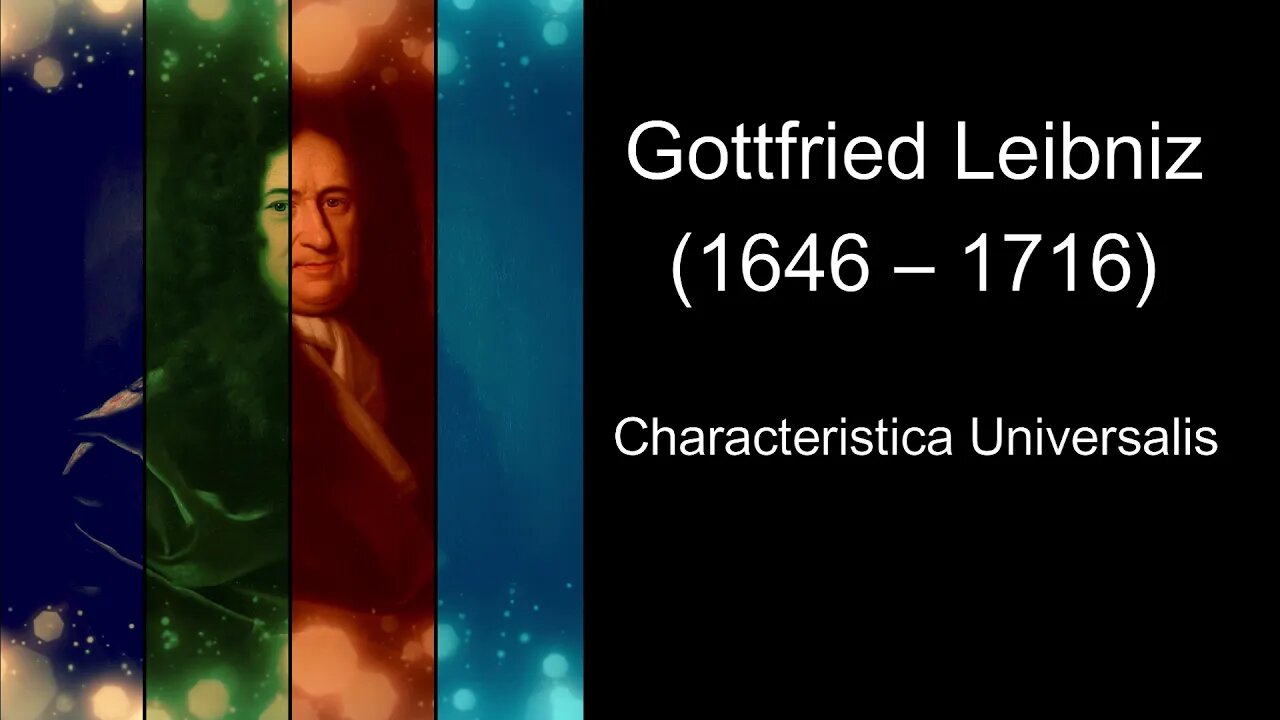Premium Only Content

Gottfried Leibniz - Characteristica Universalis
This is just a test. Words from Wikipedia and video made with Speechelo.
--------------------------------------------
The Latin term characteristica universalis, commonly interpreted as universal characteristic, or universal character in English, is a universal and formal language imagined by Gottfried Leibniz able to express mathematical, scientific, and metaphysical concepts. Leibniz thus hoped to create a language usable within the framework of a universal logical calculation or calculus ratiocinator.
The characteristica universalis is a recurring concept in the writings of Leibniz. When writing in French, he sometimes employed the phrase spécieuse générale to the same effect. The concept is sometimes paired with his notion of a calculus ratiocinator and with his plans for an encyclopaedia as a compendium of all human knowledge.
Many Leibniz scholars writing in English seem to agree that he intended his characteristica universalis or "universal character" to be a form of pasigraphy, or ideographic language. This was to be based on a rationalized version of the 'principles' of Chinese characters, as Europeans understood these characters in the seventeenth century. From this perspective it is common to find the characteristica universalis associated with contemporary universal language projects like Esperanto, auxiliary languages like Interlingua, and formal logic projects like Frege's Begriffsschrift. The global expansion of European commerce in Leibniz's time provided mercantilist motivations for a universal language of trade so that traders could communicate with any natural language.
Others, such as Jaenecke, for example, have observed that Leibniz also had other intentions for the characteristica universalis, and these aspects appear to be a source of the aforementioned vagueness and inconsistency in modern interpretations. According to Jaenecke in 1996,
“The Leibniz project is not a matter of logic but rather one of knowledge representation, a field largely unexploited in today's logic-oriented epistemology and philosophy of science. It is precisely this one-sided orientation of these disciplines, which is responsible for the distorted picture of Leibniz's work found in the literature.”
-
 3:56:39
3:56:39
Alex Zedra
10 hours agoLIVE! New Game | The Escape: Together
69.1K11 -
 5:01:11
5:01:11
FreshandFit
11 hours agoJoe Budden Arrested For Being A Perv! Tesla Cybertruck Explosion
102K20 -
 2:08:45
2:08:45
Kim Iversen
14 hours agoNew Year, New PSYOP?: The Fort Bragg Connection In The New Years Terror Attacks
84.6K183 -
 1:41:18
1:41:18
Glenn Greenwald
13 hours agoTerror Attacks Exploited To Push Unrelated Narratives; Facing Imminent Firing Squad, Liz Cheney Awarded Presidential Medal | SYSTEM UPDATE #381
118K229 -
 1:00:32
1:00:32
Man in America
15 hours ago🔴 LIVE: Terror Attacks or False Flags? IT DOESN'T ADD UP!!!
98.1K38 -
 1:02:38
1:02:38
Donald Trump Jr.
17 hours agoNew Year’s Terror, Latest Breaking News with Sebastian Gorka | TRIGGERED Ep.204
221K449 -
 59:59
59:59
The StoneZONE with Roger Stone
12 hours agoAfter Years of Targeting Trump, FBI and DOJ are Unprepared to Stop Terror Attacks | The StoneZONE
79.3K28 -
 1:26:42
1:26:42
Leonardaisfunny
10 hours ago $5.81 earnedH-1b Visas: Infinity Indians
52.9K28 -
 1:08:33
1:08:33
Josh Pate's College Football Show
15 hours ago $3.22 earnedPlayoff Reaction Special: Ohio State Owns Oregon | Texas Survives | UGA vs Notre Dame Takeaways
46.3K6 -
 58:04
58:04
Kimberly Guilfoyle
15 hours agoFBI's Terror Response Failures, Live with Steve Friend & Kyle Seraphin | Ep. 185
118K48